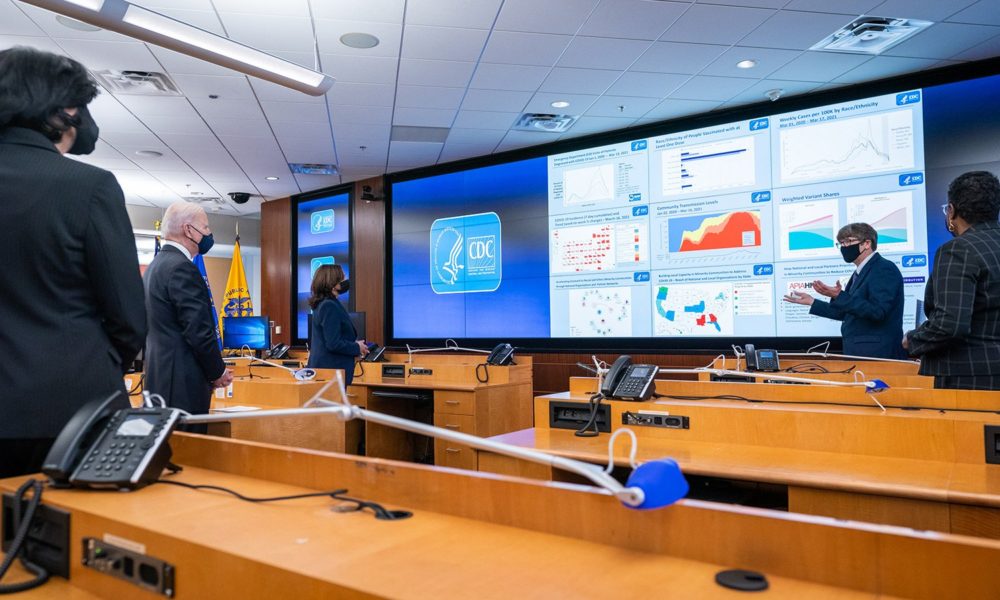Yesterday, the Biden-Harris administration announced the formation of a task force whose goal is to review and strengthen scientific integrity across the federal government. The task force was mandated by a presidential memorandum signed by President Biden on January 27 of this year. The announcement sets a 120-day clock for the task force to conduct a “thorough review of the effectiveness of scientific-integrity policies” implemented by 28 federal agencies.
Importantly, the task force will hold a public comment period during the review process. This will be a critical and rare opportunity for the public to provide input to the White House. Thus, it will be important for the scientific community to take advantage of this opportunity and voice the need for stronger scientific integrity policies to protect federal scientists and their work.
Is this great news?
This is more than great news—it is amazing news! Political interference in evidence-based decision-making is an issue under every presidential administration at least dating back to President Eisenhower. And because government decisions affect our health and safety, political interference in government decisions can have significant impacts especially for underserved communities (i.e., communities of color, low-income communities, and indigenous communities). Therefore, it is in the public’s best interest to ensure that government decisions are informed by the best available science.
The prior administration politicized evidence-based decisions in nearly 200 cases by our count. Compared to the George W. Bush (98 attacks on science) and Obama (21 attacks on science) administrations, the past four years were unprecedented in the frequency of politicization. This level of political interference put the public’s health and safety at risk, especially during a global pandemic. As Harvard historian Dr. Naomi Oreskes put it, “There’s little doubt that the American death toll from COVID-19 was far higher than it needed to be and that the administration’s early unwillingness to take the issue seriously to listen to and act on the advice of experts and to communicate clearly contributed substantively to that death toll.” The pandemic is not the only science-based issue that was politicized. Decisions on endangered species listings, worker safety, LGBQT+ health, and air pollution were all politicized, putting the health of our communities and environment in danger.
Lessons learned
There isn’t much positive to take away from the prior administration’s science-based work; however, we learned a lot as we saw in real time what a truly anti-science administration is capable of doing. And one of those pivotal lessons is that scientific integrity policies that exist and are being implemented at 28 federal agencies have some weaknesses. Furthermore, the enforcement of these policies is difficult when senior-level political appointees are the individuals violating the policies. How does a scientific integrity official, who sits lower in an agency’s hierarchy of power, hold the secretary of the entire agency accountable for violating the scientific integrity policy?
The lack of enforcement, particularly for senior-level officials, is a key issue that will need to be addressed by the scientific integrity task force. A prominent scientific integrity violation from the prior administration known as “Sharpiegate” clearly illustrates the importance of this issue. This incident involved the doctoring of a hurricane map by someone in the White House with a Sharpie marker projecting an inaccurate forecast of hurricane impact into Alabama. When the National Weather Service of Birmingham attempted to calm residents of Alabama through communicating the scientifically valid information, a statement from the National Oceanic and Atmospheric Administration (NOAA) disavowed that information. An inspector general report determined that the agency’s scientific integrity policy was violated, yet no one was ever held accountable for the violation.
Another scientific integrity concern that the task force should discuss is communicating, and making publicly transparent, scientific information. An analysis by UCS showed that COVID-19 information and guidance was largely shared and controlled by non-scientists during the prior administration. This resulted in misinformation being spread (e.g., injecting bleach may cure you of COVID-19), eroding public trust in federal science and harming people’s health. Both NOAA and the Environmental Protection Agency (EPA) have provisions in their scientific integrity policies that allow scientists to communicate about their work, and there is no evidence that such a provision has been or will be problematic. The public deserves to hear from the scientists conducting work that informs decisions that affect us all.
Next steps for the task force
The task force will have their first meeting this Friday, May 14, where they will likely discuss their goals and processes. Enforcement and scientific communication are not the only scientific integrity issues that this 46-member task force will need to tackle. The task force will need to discuss how to build trust among scientists in reporting allegations, how to ensure that scientific integrity training is effective, and how to deal with conflicts of interest for those involved in evidence-based decision-making processes. And this still is not an exhaustive list of the various scientific integrity issues that will need to be addressed by this task force!
I cannot overstate the importance of this task force and their mission. People’s very lives are on the line when our government makes decisions without using the best available information, particularly those from underserved communities. Furthermore, we currently find ourselves still grappling with a pandemic that has taken over 580,000 lives and dealing with the negative effects of climate change that are projected to become worse. Our communities do not have the time for political interference to supersede science. This task force can make a huge difference in the lives of hundred of millions of people—it is a huge undertaking and I’m so grateful that the Biden-Harris administration sees the issue as critically important as we do.

